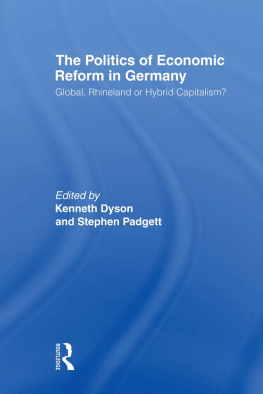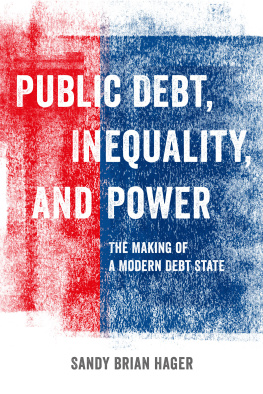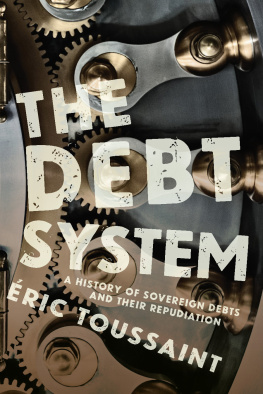(p.vi) The writer today should be not so much the mouthpiece of a community (for then he will only tell it what it knows already) as its conscience, its critical faculty, its generous instinct. Louis MacNeice (1938), Modern Poetry: A Personal Essay (Oxford: Oxford University Press), preface, iii.
Never take a risk that you cannot afford to lose. Unattributed golden rule of investing.
Contents
(p.vii) Acknowledgements
Paraphrasing the French poet Paul Valry, a book is never finished, only abandoned. Nevertheless, this sense of incompleteness and loss has its compensations. It provides me with the opportunity to thank all those who have contributed, in their various ways, to helping make this book possible. My debts are numerous, many contracted in long discussions with kind and patient colleagues.
The stimulus to work on the book came from the Sixth Framework Programme of the European Union (EU), Priority 7, Citizens and Governance in a Knowledge-Based Society (CIT3-CT-2005-513421). This research project grant helped me to undertake the initial, exploratory research. In writing European Economic Governance and Policies (Oxford University Press, 2010), with Lucia Quaglia, I unearthed a number of historical documents that highlighted the significance of creditor-debtor state relations in shaping European macroeconomic governance. Study of neglected Bank of England and HM Treasury documents of 19311932, alongside the much-better-known Keynes documents of 19331944, led me to rethink longer-term patterns in European macroeconomic governance. Looking back at the role of creditor-debtor state relations in European history posed the question of how far these relations have been reframed and formalized within a new Europe. The book began life as an exercise in pattern detection, in tracing and teasing out continuities and changes in European macroeconomic governance over time.
I benefitted from scores of elite interviews in Amsterdam, Brussels, Berlin, Frankfurt, London, Luxembourg, Paris, and elsewhere, conducted on terms of anonymity and confidentiality. They led me to identify and examine the informal creditor-state club at the heart of European macroeconomic arrangements. I came to recognize the significance of this informal club in imparting substance to negotiating the foundations of European macroeconomic arrangements, in setting its historic trajectories of path-dependent behaviour, and in exercising disproportionate influence on crisis management. This book would have been much weaker without the frankness, patience, and good will of these interviewees.
In writing a book that grounds historical and political analysis in a great deal of economic and technical argument and detail, I have accumulated many debts of gratitude. Very often, friends and colleagues, in and outside academia, will be unaware of just how helpful they have been. They have not just supplied me with papers, documents, and historic data sets. They have forced me to clarify my thinking. Above all, they have bolstered my confidence in crossing disciplinary boundaries and in reassuring me about the value of history in enlightening policy-makers. They have also shown me the importance (p.viii) of engaging with the moral and emotional aspects of debt. Debt evokes complex and powerful sentiments of guilt, shame, fear, humiliation, resentment, and anger. Popular emotions, and their manipulation by governing elites, complicate the politics of sovereign debt crises. They give it a fragile and indeterminate nature that macroeconomic modelling cannot internalize. This interest was stimulated by colleagues at Cardiff University, notably Paul Crosthwaite, Kate Griffith, Bruce Haddock, and Martin Kayman, as well as by Noel OSullivan at Hull University. In their own individual ways, friends and colleagues have helped to shape and correct my thinking. However, they are not accountable for errors of fact and judgement that may affect this book. These errors remain entirely my own responsibility.
I am hugely indebted to those who have helped me to track down historical debt data. On Belgium and the Netherlands, I was assisted by Ivo Maes (Catholic University of Leuven and National Bank of Belgium); on France, by Guillaume Daudin (University of Lille 1 and Sciences Po, Paris) and Nicolas Jabko (Sciences Po); on Germany, by Klaus Deutsch (Deutsche Bank); on Greece, by George Pagoulatos (Athens University of Economics and Business); on eighteenth-century Ireland, by Aidan Kane (NUI Galway); on Italy, by Maura Francese (Bank of Italy) and Francesco Stolfi (Exeter University); on the Ottoman Empire, by evket Pamuk (London School of Economics); and on Spain, by Francisco Comn (University of Alcal, Madrid). My insights into the history of public debt were greatly enriched by the advice of Erik Buyst (Catholic University of Leuven), Jack Hayward (Hull University), Scott Newton (Cardiff University), and Helen Nicholson (Cardiff University).










